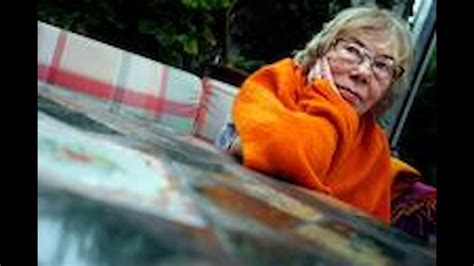A Quote by Leonard Bernstein
A work of art does not answer questions, it provokes them; and its essential meaning is in the tension between the contradictory answers.
Related Quotes
I try to make art which celebrates doubt and uncertainty. Which provokes answers but doesn't give them. Which withholds absolute meaning by incorporating parasite meanings. Which suspends meaning while perpetually dispatching you toward interpretation, urging you beyond dogmatism, beyond doctrine, beyond ideology, beyond authority.
Indeed, the only truly serious questions are ones that even a child can formulate. Only the most naive of questions are truly serious. They are the questions with no answers. A question with no answer is a barrier that cannot be breached. In other words, it is questions with no answers that set the limit of human possibilities, describe the boundaries of human existence.
It's perfectly clear to me that religion is a myth. It's something we have invented to explain the inexplicable. My religion and the spiritual side of my life come from a sense of connection to the humankind and nature on this planet and in the universe. I am in overwhelming awe of it all: It is so fantastic, so complex, so beyond comprehension. What does it all mean -- if it has any meaning at all? But how can it all exist if it doesn't have some kind of meaning? I think anyone who suggests that they have the answer is motivated by the need to invent answers, because we have no such answers.
The Greek word for philosopher (philosophos) connotes a distinction from sophos. It signifies the lover of wisdom (knowledge) as distinguished from him who considers himself wise in the possession of knowledge. This meaning of the word still endures: the essence of philosophy is not the possession of the truth but the search for truth. ... Philosophy means to be on the way. Its questions are more essential than its answers, and every answer becomes a new question.








































